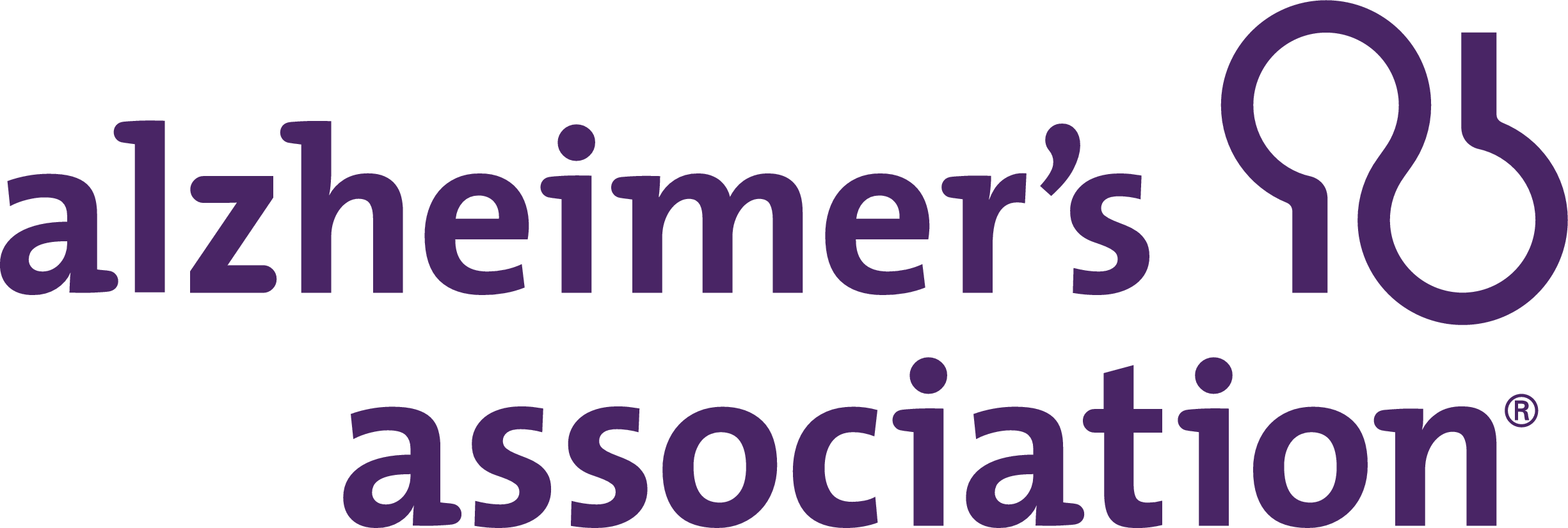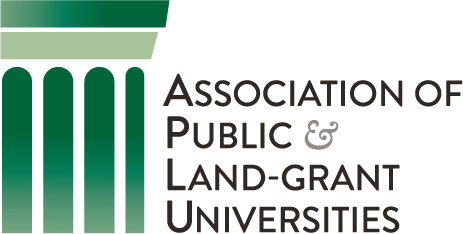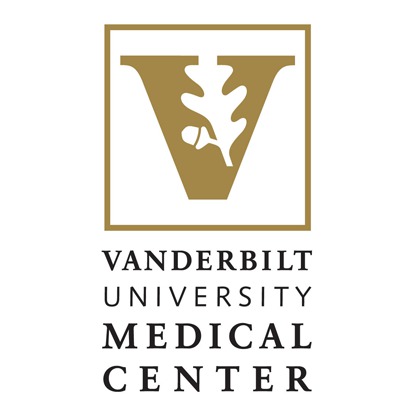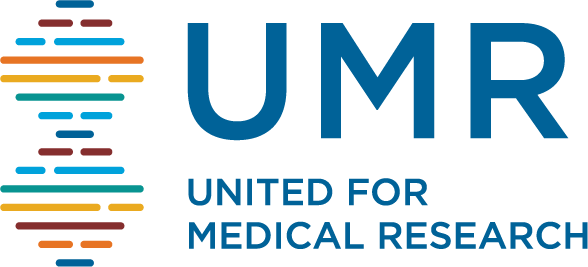Highlights
Filter By UMR Member Organization
FILTER
AdvaMed Northwestern University Alzheimer’s Association PhRMA American Association for the Advancement of Science Stanford University American Cancer Society Cancer Action Network Thermo Fisher Scientific American Heart Association

BD Launches Combination Test for COVID-19, Influenza A/B and Respiratory Syncytial Virus
BD (Becton, Dickinson and Company) (NYSE: BDX), a leading global medical technology company, announced that the BD MAX™ Respiratory Viral Panel (RVP), a new molecular diagnostic combination test for SARS-CoV-2, Influenza A + B and Respiratory Syncytial Virus (RSV), has been CE marked to the IVD directive 98/79/EC.

Stanford scientists decipher the danger of gummy phlegm in severe COVID-19
Stanford University scientists have implicated a logjam of three long, stringy substances behind deadly thick sputum in COVID-19 patients who need a machine to help them breathe. One of these substances may prove especially amenable to treatment with a drug invented long ago for another purpose. It may also play a role in long COVID.

Genomic differences selected through evolution may offer clues as to why COVID-19 outcomes vary widely
A new study identifies dozens of genomic variants that may drive these hard-to-predict differences in clinical outcomes. According to work led by University of Pennsylvania scientists, genomic variants in four genes that are critical to SARS-CoV-2 infection, including the ACE2 gene, were targets of natural selection and associated with health conditions seen in COVID-19 patients.

Genomic differences selected through evolution may offer clues as to why COVID-19 outcomes vary widely
A new study identifies dozens of genomic variations that may drive these hard-to-predict differences in clinical outcomes. According to work led by University of Pennsylvania scientists, genomic variants in four genes that are critical to SARS-CoV-2 infection, including the ACE2 gene, were targets of natural selection and associated with health conditions seen in COVID-19 patients.

AdvaMed Calls for Renewed Effort to Sustain and Strengthen COVID Test Manufacturing
Today, AdvaMed President and CEO Scott Whitaker issued a statement following the White House’s announcement that the federal government’s COVID-19 response would be reduced in the coming weeks without additional funding from Congress.

AdvaMed Statement on White House Request for Information on COVID-19 Test Manufacturing
Today, AdvaMed President and CEO Scott Whitaker applauded the White House’s Request for Information on policies to sustain diagnostic test manufacturing for COVID-19. This comes as AdvaMedDx, a division of AdvaMed that represents more than 75 diagnostic companies, and other partners have encouraged the Biden Administration to do more to maintain COVID-19 test manufacturing capacity and implement public-private agreements to shore up supply.

Biden administration to buy 500M more rapid COVID-19 tests to give free to Americans
While AdvaMed said in a written statement last month that the Biden administration\'s plan to purchase 500 million rapid COVID-19 tests and make them available for free was an \"encouraging\" step, the medtech lobby emphasized that the federal government plays a \"pivotal role of guaranteeing the market,\" and going forward more must be done to ensure a consistent and reliable supply of diagnostics.

AdvaMed: Administration Plan to Purchase 500 Million Covid Tests an “Encouraging Next Step,” Says More Must Be Done
Today, the Advanced Medical Technology Association (AdvaMed) released the following statement from President and CEO Scott Whitaker regarding the White House’s newest measures to address the COVID-19 pandemic and rising cases related to the Omicron variant:
“A consistent, reliable supply of rapid Covid tests is critical to getting our country through to the other side of this pandemic. The Administration’s announcement today that it will purchase 500 million COVID tests is an encouraging next step, and this guaranteed-purchase approach is one of several we have urged this Administration to take.

Nanoparticle-Based COVID-19 Vaccine Could Target Future Infectious Diseases
Just one dose of a new nanoparticle-based COVID-19 vaccine was enough to produce an immune response in animals on track with vaccines currently in clinical use. And with minor changes, Northwestern University investigators hope the same vaccine platform could target other infectious diseases.

SARS-CoV-2 Infection Increases Risk of Maternal Mortality and Obstetric Complications
Pregnant and postpartum individuals infected with SARS-CoV-2 during pregnancy have an increased risk of maternal mortality or morbidity from obstetric complications, according to a recent study published in JAMA.

Why COVID-19 Surveillance in Nigeria Is Critical
If the United States ignores COVID-19 in Nigeria, we forgo global genomic surveillance at our own peril, reports a new Northwestern Medicine study published in Nature Communications.

Nano Bubbles Could Treat, Prevent Current and Future Strains Of SARS-Cov-2
Northwestern Medicine scientists and collaborators at The University of Texas MD Anderson Cancer Center have identified natural nano-bubbles containing the ACE2 protein (evACE2) in the blood of COVID-19 patients and discovered these nano-sized particles can block infection from broad strains of SARS-CoV-2 virus in preclinical studies.

Biomarkers Say COVID-19 Brain Damage Is Like Alzheimer’s, But Faster
The link between COVID-19 and the onset of dementia or even Alzheimer’s is not yet known — and researchers will need years more to understand any relationship there in full — but, evidence is growing that the diseases do share the biomarkers of brain damage. And according to a new study, COVID-19 appears to bring higher levels of blood proteins linked to neurodegeneration than Alzheimer’s disease does in the short term.

COVID-19 May Damage the Brain in Older Adults
While COVID-19 is notorious for wreaking havoc on the body, new research shows it could also impact the brain.
Studies presented at the Alzheimer’s Association International Conference® 2021 (AAIC®) in July found links between COVID-19 and persistent cognitive deficits, including the acceleration of Alzheimer’s-related brain changes and symptoms.

Depression Rates in US Tripled When the Pandemic First Hit—Now, They’re Even Worse
Depression among adults in the United States tripled in the early 2020 months of the global coronavirus pandemic—jumping from 8.5 percent before the pandemic to a staggering 27.8 percent. New research from Boston University School of Public Health reveals that the elevated rate of depression has persisted into 2021, and even worsened, climbing to 32.8 percent and affecting 1 in every 3 American adults.

Research suggests global dementia cases could triple by 2050, and also that COVID-19 accelerates Alzheimer’s
Research presented at the Alzheimer’s Association International Conference 2021 suggests COVID-19 is associated with long-term cognitive dysfunction and acceleration of Alzheimer’s disease pathology and symptoms. These studies were among several pieces of groundbreaking research featured at AAIC 2021.

Understanding Long COVID-19
The Centers for Disease Control and Prevention (CDC) defines long COVID as health problems lasting four or more weeks after first getting infected with the novel coronavirus, impacting as many as one out of every four patients who are diagnosed with COVID-19. The aftermath of symptoms for self-described “long haulers” is unfortunately all too real: one patient shared that even after a full 12 months since he “recovered” from his COVID-19 infection, he is still dealing with symptoms like trouble breathing, coughing, shortness of breath and having to rely on an oxygen tank because of severely damaged lungs.

Ensuring global vaccine equity requires eliminating trade and regulatory barriers
Since the emergency use authorization of the first COVID-19 vaccine in December 2020, health experts have underscored that in order to combat the pandemic, vaccines must be widely available, accessible and reach people worldwide. To help make this a reality, the biopharmaceutical industry, governments and other stakeholders have been working tirelessly to scale up manufacturing and production and establish mechanisms for vaccine dose sharing to support equitable access globally. Today, COVID-19 vaccines have been administered across 180 countries, and production is expected to climb to 11 billion vaccine doses by the end of 2021.

PhRMA CEO Steve Ubl and Sage Therapeutics CEO Barry Greene: Coming Together to Fight COVID-19
This year, the biopharmaceutical research industry has been working around the clock to combat the COVID-19 virus, including developing effective therapeutics to treat COVID-19 and vaccines to prevent future infections. A key piece of that has been the impact the pandemic has had on mental health. PhRMA CEO Steve Ubl recently had the opportunity to connect with Barry Greene, CEO of Sage Therapeutics, about the company’s efforts to address COVID-19’s impact.

Coming together to fight COVID-19: A conversation with Barry Greene, CEO of Sage Therapeutics
This year, our industry has been working around the clock to combat the COVID-19 virus, including developing effective therapeutics to treat COVID-19 and vaccines to prevent future infections. A key piece of that has been the impact the pandemic has had on mental health.
I had the opportunity to connect with Barry Greene, CEO of Sage Therapeutics, about the company’s efforts to address COVID-19’s impact.

Convalescent plasma shows renewed promise for COVID-19 in outpatient trial
Among the possible treatments for people just developing COVID-19 symptoms, antibody-rich plasma donated by recovered patients has taken a backseat to options such as monoclonal antibodies and antiviral pills. But a new clinical trial suggests it may deserve a bigger role. The trial results, posted today as a preprint, showed a transfusion of convalescent plasma cut rates of hospitalization roughly in half—from 6.3% to 2.9%—in people treated early in the course of their infection with SARS-CoV-2.

Robust immune responses are observed after one dose of BNT162b2 mRNA vaccine dose in SARS-CoV-2 experienced individuals
The use of COVID-19 vaccines will play the major role in helping to end the pandemic that has killed millions worldwide. COVID-19 vaccines have resulted in robust humoral responses and protective efficacy in human trials, but efficacy trials excluded individuals with a prior diagnosis of COVID-19. As a result, little is known about how immune responses induced by mRNA vaccines differ in individuals who recovered from COVID-19. Here, we evaluated longitudinal immune responses to two-dose BNT162b2 mRNA vaccination in 15 adults who had experienced COVID-19, compared to 21 adults who did not have prior COVID-19.

‘This virus is a shape-shifter’
In an effort to predict future evolutionary maneuvers of SARS-CoV-2, a research team led by investigators at Harvard Medical School has identified several likely mutations that would allow the virus to evade immune defenses, including natural immunity acquired through infection or from vaccination, as well as antibody-based treatments.

A prominent virologist warns COVID-19 pill could unleash dangerous mutants. Others see little cause for alarm
The first oral antiviral for treating COVID-19, Merck & Co.’s molnupiravir, received approval from the U.K. Medicines and Healthcare products Regulatory Agency on 4 November. But the approval, for people at high risk of severe disease, comes as a prominent virologist has suggested using molnupiravir could do far more harm than good, potentially unleashing new, deadlier variants of SARS-CoV-2. Other virologists say the concern is worth tracking but is largely hypothetical, for now.

Stanford scientists decipher the danger of gummy phlegm in severe COVID-19
Stanford University scientists have implicated a logjam of three long, stringy substances behind deadly thick sputum in COVID-19 patients who need a machine to help them breathe. One of these substances may prove especially amenable to treatment with a drug invented long ago for another purpose. It may also play a role in long COVID.

COVID-19 vaccination may protect against variants better than natural infection, study finds s
Antibodies generated by COVID-19 vaccines are more suited to recognizing viral variants than antibodies that arise from natural infection, according to a study by researchers at Stanford Medicine.

COVID-19 vaccination may protect against variants better than natural infection, study finds
Antibodies generated by COVID-19 vaccines are more suited to recognizing viral variants than antibodies that arise from natural infection, according to a study by researchers at Stanford Medicine.

Prior treatment with cancer drug likely renders COVID-19 vaccine ineffective, study finds
People who have been treated with rituximab, a widely used cancer drug, or similar drugs respond poorly or not at all to subsequent COVID-19 mRNA vaccines, according to a study by researchers at Stanford Medicine.
Survey: Cancer Patients and Survivors Embrace Telehealth
A new survey shows cancer patients and recent survivors have had a positive experience using telehealth in the wake of the pandemic and are willing to use or adapt to using telehealth services in the future. According to a new Survivor Views survey from the American Cancer Society Cancer Action Network (ACS CAN), an overwhelming 94% of patients said their issues and questions were addressed well through their telehealth visit with two-thirds saying their issues were very well addressed.
Survey: Cancer Patients and Survivors Continue to Face Pandemic-Related Health Care Delays 1 Year Later
According to a new Survivor Views survey from the American Cancer Society Cancer Action Network (ACS CAN), 1 in 3 (35%) cancer patients and survivors report that the pandemic has affected their ability to access care. Even during the last few months, as the overall spread of the virus has begun to decline due to vaccinations, roughly 1 in 6 (16%) patients report a delay or interruption in their cancer screening schedule, including 1 in 10 (11%) who experienced a screening delay for a cancer with which they’d previously been diagnosed. These delays were driven mostly by logistical issues such as staffing shortages or a lack of available appointments (26%), followed by patients’ concerns about the risks of contracting the virus (22%).
Volunteers Meet Virtually with Lawmakers to Support Legislation Allowing Pharmacists to Administer All CDC Recommended Vaccines
Volunteers from the American Cancer Society Cancer Action Network (ACS CAN) along with supporters of organizations including NAACP New York State Conference, New York State Association of County Health Organizations, New York Public Health Association and more than 20 others are gathering virtually today to urge lawmakers in Albany to pass legislation this session that will enable pharmacists in the state to administer all vaccines recommended by the Centers for Disease Control and Prevention to anyone over the age of 18.
Cancer Research Groups Push Emergency Funding to Restart Clinical Trials in Infrastructure Package
A group of more than fifty cancer research-focused organizations are urging Congress to include $10 billion in emergency funding to restart cancer research and clinical trials at the National Institutes of Health (NIH) stalled by the coronavirus pandemic.

Moderna and Thermo Fisher Scientific Announce Long-Term Strategic Collaboration
Moderna, Inc. (Nasdaq: MRNA), a biotechnology company pioneering messenger RNA (mRNA) therapeutics and vaccines, and Thermo Fisher Scientific Inc. (NYSE:TMO), the world leader in serving science, today announced a 15-year strategic collaboration agreement to enable dedicated large-scale manufacturing in the U.S. of Spikevax®, Moderna’s COVID-19 vaccine, and other investigational mRNA medicines in its pipeline.

Thermo Fisher Scientific Launches Rapid Environmental PCR Testing Solution That Detects In-Air SARS-CoV-2 Pathogens
Thermo Fisher Scientific Inc., today announced the launch of a new rapid environmental test to help in the fight against COVID-19. The Thermo Scientific Renvo Rapid PCR Test is the latest solution in the company’s in-air pathogen surveillance product portfolio. The Renvo Rapid PCR Test is performed on air samples collected using the company’s Thermo Scientific AerosolSense Sampler.

Thermo Fisher Scientific Launches SpeciMAX Stabilized Saliva Collection Kit
As global SARS-CoV-2 research efforts continue, labs are increasingly conducting scientific studies using banked saliva samples, taking advantage of a sample type which is easy to access and non-invasive. To this end, Thermo Fisher Scientific has launched the Thermo Scientific SpeciMAX Stabilized Saliva Collection Kit*, which is designed to safely collect saliva for research.

Thermo Fisher Scientific Awarded $192.5 Million U.S. Government Contract to Expand Domestic Pipette Tip Manufacturing
Thermo Fisher Scientific Inc. (NYSE: TMO), the world leader in serving science, today announced a $192.5 million contract award from the U.S. Department of Defense (DoD) to ensure reliable domestic production of pipette tips, which are used within research and diagnostic labs to dispense precise amounts of liquid. In mid-2020, the company announced its own investments to increase pipette tip production capacity to support COVID-19 testing.
With the DoD award, issued on behalf of and in coordination with the U.S. Department of Health and Human Services (HHS), Thermo Fisher will co-invest with the U.S. government in building a new, state-of-the-art, energy efficient manufacturing facility for pipette tips, which are used in vital disease research and in high volumes for processing of diagnostic tests nationally, including COVID-19, during the pandemic.

Heart disease likely to remain #1 killer in U.S. indefinitely due to long-term COVID-19 impact
Heart disease and stroke continue to kill more people in the U.S. than any other cause, despite, and likely even due to, the impact of the deadly COVID-19 pandemic last year, according to new provisional data released today from the U.S Centers for Disease Control and Prevention. That trend is likely to continue for years to come as the long-term impact of the novel coronavirus will directly affect cardiovascular health, according to the American Heart Association, the leading global volunteer organization dedicated to fighting heart disease and stroke for all.
COVID-19 has taken a huge toll worldwide and is now officially ranked as the third leading cause of death in the U.S. in today’s report. Heart disease remains at the top spot and stroke remains at #5. However, the influence of COVID-19 will directly and indirectly impact rates of cardiovascular disease prevalence and deaths for years to come, according to Donald M. Lloyd-Jones, M.D., Sc.M., FAHA, president of the American Heart Association

Statins may reduce death from, severity of COVID-19 among those with heart disease or high blood pressure
Research published today in The Public Library of Science ONE, PLOS ONE, examined the relationship between use of medications to control cholesterol or blood pressure levels, and the risk of death among people who were hospitalized due to COVID-19.

Undetected early heart damage raises risk of death in hospitalized COVID-19 patients
Hospitalized COVID-19 patients with impaired first-phase ejection fraction were nearly 5 times more likely to die compared to patients with healthier measures of this early, often undetected sign of heart failure, according to new research published today in Hypertension, an American Heart Association journal. First-phase ejection fraction is a measure of the left ventricular ejection fraction until the time of maximal ventricular contraction.
Cardiovascular risk factors and/or disease have been recognized as COVID-19 risk factors that have a high negative impact on patient outcomes, since early in the SARS-CoV-2 pandemic. Researchers hypothesized that predisposition to heart failure would be associated with more severe cases of COVID-19 in hospitalized patients.

Small study shows heart damage after COVID-19 uncommon in college athletes
In a small study, researchers found college athletes who contracted COVID-19 rarely had cardiac complications. Most had mild COVID symptoms that did not require treatment, and in a small percentage of those with abnormal cardiac testing, there was no evidence of heart damage on special imaging tests. All athletes returned to sports without any health concerns, according to new research published today in the American Heart Association’s flagship journal Circulation.

Genomic differences selected through evolution may offer clues as to why COVID-19 outcomes vary widely
A new study identifies dozens of genomic variants that may drive these hard-to-predict differences in clinical outcomes. According to work led by University of Pennsylvania scientists, genomic variants in four genes that are critical to SARS-CoV-2 infection, including the ACE2 gene, were targets of natural selection and associated with health conditions seen in COVID-19 patients.

Genomic differences selected through evolution may offer clues as to why COVID-19 outcomes vary widely
A new study identifies dozens of genomic variations that may drive these hard-to-predict differences in clinical outcomes. According to work led by University of Pennsylvania scientists, genomic variants in four genes that are critical to SARS-CoV-2 infection, including the ACE2 gene, were targets of natural selection and associated with health conditions seen in COVID-19 patients.

New antiviral drug combination is highly effective against SARS-CoV-2
Researchers have identified a powerful combination of antivirals to treat COVID-19. Combining the drug brequniar with remdesivir or molnupiravir—both approved by the U.S. Food and Drug Administration for emergency use—inhibited the SARS-CoV-2 virus in human respiratory cells and in mice, according to a new study led by researchers in the Perelman School of Medicine and the University of Maryland School of Medicine.

Chewing gum to block COVID-19? Penn researchers hope so, but there’s a long way to go.
An experimental chewing gum could reduce the spread of Sars-CoV-2, the virus that causes COVID-19, according to a recent study by University of Pennsylvania researchers published in the journal Molecular Therapy. You might already have noticed headlines calling the findings “fresh hope” in our fight against COVID-19. But how excited should we be? And would this gum work against omicron, the newest variant of concern?

President Barbara R. Snyder Praises President Biden’s FY23 Budget for Continued Investments in American Science and Innovation
President Biden’s budget proposal for FY23 contains significant new investments in the nation’s economy and its scientific and innovation enterprise; we commend the president for including these crucial items.

AAU, Associations Issue Joint Statement Regarding Dangerous State Restrictions on COVID-19 Public Health Measures
AAU joined ACHA, ACE, and 26 other higher education associations in issuing a joint statement about state restrictions that have prevented colleges from deploying evidence-based public health measures to prevent COVID-19 outbreaks on campus. Several states in the past year have implemented legislation or executive actions forbidding inquiries about vaccinations, banning vaccination requirements, blocking surveillance testing, and curbing the use of masking and other mitigation strategies; these restrictions undermine the ability of colleges and universities to operate safely and fully. In many instances, they directly contradict CDC guidance. As the statement noted, these restrictions “ultimately threaten the health and safety of students, faculty, staff, and neighboring communities.”

For future medical breakthroughs, we must rebuild research lost to COVID
Perhaps even more than past breakthroughs, the novel COVID-19 mRNA vaccines have inspired immediate and widespread relief and optimism. Biomedical scientists labored for decades to develop the expertise and proof of feasibility that led to the vaccines; this innovative work has saved countless lives and promises an end to a pandemic that has killed millions of people and disrupted normal life around the world for more than a year.

Friends of IES Requests At Least $700B for IES in FY22
The Friends of IES, of which AAU is a member, sent a letter to House and Senate Labor, HHS, Education, and Related Agencies appropriations subcommittee leaders requesting at least $700 million for the Institute of Education Sciences in FY22. The letter says that this funding would “bolster the research and statistical infrastructure needed to develop and scale up evidence-based interventions to support learning recovery, understand and address the impacts of the COVID-19 pandemic across all levels of education, and ensure the continuation of research and data collection in the field.”

Why some COVID-19 patients lose sense of smell, taste and some don’t: Researchers are narrowing in on cause
Researchers may have narrowed down the reason some people who contract COVID-19 lose their sense of smell and taste.
A new study published in the journal Nature Genetics points to damaged cells in the olfactory epithelium, a part of the nose that traps odor molecules and submits a response to the brain, as the likely culprit.

Research Snapshot: COVID-19 virus test sensitivity varies with body’s circadian rhythm
Throughout the COVID-19 pandemic, health care practitioners have relied on COVID-19 testing to tell them what safety precautions to follow with each patient. Carl Johnson, Cornelius Vanderbilt Professor of Biological Sciences, wondered how the virus might act differently depending on the time of day and the body’s circadian rhythms.

“Ultra-potent” antibody against COVID-19 variants isolated at VUMC
A technology developed at Vanderbilt University Medical Center has led to the discovery of an “ultra-potent” monoclonal antibody against multiple variants of SARS-CoV-2, the virus responsible for COVID-19, including the delta variant.
The antibody has rare characteristics that make it a valuable addition to the limited set of broadly reactive antibody therapeutic candidates, researchers reported Sept. 15 in the journal Cell Reports.
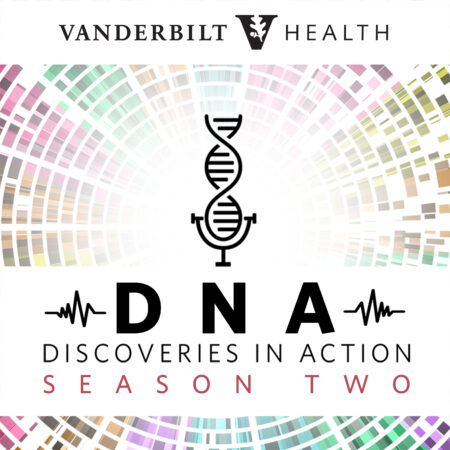
“Vanderbilt Health DNA: Discoveries in Action” Podcast
The first episode of the second season of Vanderbilt University Medical Center’s original podcast series, Vanderbilt Health DNA: Discoveries in Action, tackles bold questions and issues pushed to the surface by COVID-19. This season, the award-winning 10-episode series delves into a host of topics, including the role of clinical trials in advancing medicine, equity and representation, what makes a society pandemic-ready, evolving ICU care, and the permanent imprint of the pandemic on how medical institutions connect to their communities.

APLU Urges Congress to Restore Research Investment in Infrastructure Negotiations
Association of Public and Land-grant Universities (APLU) President Peter McPherson sent a letter to congressional leadership on May 26 urging lawmakers to include research investment in infrastructure negotiations:
“APLU was disheartened to see that the White House offered to recede their initial proposal to invest in research and development (R&D) as a component of infrastructure package discussions. The Administration′s initial proposal to invest $40 billion to upgrade research infrastructure in laboratories across the country, including brick-and-mortar facilities and computing capabilities and networks is worthy of pursuit and much needed. Similarly, the Administration‘s plan outlined worthwhile investments to support infrastructure across a broad spectrum of institutions, including Minority Serving Institutions and Historically Black Colleges and Universities...”

CDC, NIFA, and Cooperative Extension Partner to Address Health Disparities in Underserved Communities
The Extension Foundation, in cooperation with APLU’s Extension Committee on Organization and Policy (ECOP), with funding from the USDA National Institute of Food and Agriculture (NIFA) and the Centers for Disease Control and Prevention (CDC) is funding a nearly $10 million grant opportunity to address health disparities among rural and other underserved communities. This effort, called the Extension Collaborative on Immunization Teaching and Engagement (EXCITE) project, is providing two opportunities for land-grant universities to promote vaccine confidence.

How Public Universities Distributed Emergency Financial Aid During the Pandemic
As part of a March virtual convening on affordability, APLU invited campus leaders and a representative from APLU’s Office of Governmental Affairs to reflect on the 2020 CARES Act, which enabled distribution of federally funded emergency aid, and implications for the future. The panelists reflected on the effectiveness of distributing federally funded Student Emergency Grants Higher Education Emergency Relief Fund (HEERF), established and funded through multiple rounds of federal coronavirus relief legislation. Learn more about the HEERF funds. Watch the full session here.

APLU Joins as Founding Member of COVID-19 Community Corps
APLU joined as a founding member of the U.S. Department of Health and Human Services‘ COVID-19 Community Corps to increase public confidence in the safety and efficacy of vaccines. Through a nationwide network of trusted messengers and consistent, fact-based public health messaging, the campaign helps the public make informed decisions about their health and COVID-19, including steps to protect themselves and their communities. The campaign has produced a host of resources for educating various communities about COVID-19 and their health.

VUMC-led study finds Moderna COVID vaccine safe and effective for children
Moderna’s COVID-19 vaccine is safe and generates robust immune responses in children ages 6 to 11 years, a national clinical trial co-led by Vanderbilt University Medical Center vaccine expert C. Buddy Creech, MD, MPH, has found.

Resistance to COVID-19 drug detected in lab study
The virus that causes COVID-19 can develop partial resistance to the antiviral drug remdesivir during infection of cultured cells in the laboratory by more than one mechanism.
The results of the laboratory study led by researchers at Vanderbilt University Medical Center and published April 28 in the journal Science Translational Medicine support the importance of monitoring for resistance and its mechanisms, tracking specific mutations and developing combination therapies.

Microbiome reflects COVID-19 severity
SARS-CoV-2 infection notoriously impairs respiratory function. Given that the microbiome, or community of microorganisms inhabiting the upper respiratory tract (URT), is involved in regulating respiratory health and immune response, a timely study by Suman Das, Ph.D., and colleagues assessed whether the URT microbiome reflects COVID-19 severity.

Pandemic leads to broader use of monoclonal antibodies
Most at risk: the millions of Americans who are still unvaccinated or not fully vaccinated, and those whose immune systems are compromised or have been suppressed and do not respond to vaccinations. These include patients being treated for cancer or who have received organ transplants.
That is why antiviral drugs and coronavirus-fighting monoclonal antibodies, including those discovered by James Crowe Jr., MD, Robert Carnahan, PhD, and colleagues at Vanderbilt University Medical Center, are so important in the continuing fight against COVID-19.

BD Launches Combination Test for COVID-19, Influenza A/B and Respiratory Syncytial Virus
BD (Becton, Dickinson and Company) (NYSE: BDX), a leading global medical technology company, announced that the BD MAX™ Respiratory Viral Panel (RVP), a new molecular diagnostic combination test for SARS-CoV-2, Influenza A + B and Respiratory Syncytial Virus (RSV), has been CE marked to the IVD directive 98/79/EC.

BD Infectious Disease Insights: The Impact of Inadequate Antimicrobial Treatment on COVID-19 Positive Patients
Recent data show that inadequate antimicrobial treatment is more common among COVID-19 positive patients – leading to prolonged hospital stays.

BD Infectious Disease Insights: The Severity of Omicron in the U.S.
As the world becomes an interdependent information sharing community in parallel with an increasingly global economy, emerging infectious diseases have been occurring with greater frequency during the past few decades. None have tested the U.S. health care system’s capacity or resiliency like COVID-19 – forever changing the way that we think about future outbreaks and how we manage the related unintended consequences. As we pass the two-year mark of the COVID-19 pandemic, we’re launching BD Infectious Disease Insights to dig deeper into today’s most prominent infectious disease trends.

USATF Extends Sponsorship with BD to Provide Rapid COVID-19 Testing to Enhance Athlete Safety at Track & Field Events
USA Track & Field and BD, a leading global medical technology company, today announced the extension of BD’s sponsorship through 2022.
As the Official COVID-19 Testing Sponsor of USATF, BD will continue providing on-demand rapid testing solutions to help ensure the safety of all participants at USATF events. The sponsorship will also include advertising at events and on broadcast, as well as the presenting sponsorship of the 2022 USATF Indoor Track & Field Championships, set for February 26-27 in Spokane, Wash.

Clinical and translational research receives $61 million grant support
The School of Medicine has received a $61 million grant from the National Center for Advancing Translational Sciences of the National Institutes of Health (NIH) to support the infrastructure for developing and carrying out biomedical research studies. The funding supports Washington University’s Institute of Clinical and Translational Sciences (ICTS), which was established in 2007. The five-year grant renewal ensures that the ICTS will continue to serve as an engine of innovation in clinical and translational research across the region, with a focus on precision medicine, health equity and diversity.

COVID-19 infection linked to higher risk of neuropathy symptoms
In a study of more than 1,500 people who were tested for SARS-CoV-2 during the first year of the pandemic, the researchers found that those who tested positive for the virus were about three times more likely to report pain, numbness or tingling in their hands and feet as those with negative tests.

Antibodies improve in quality for months after COVID-19 vaccination
For at least six months after COVID-19 vaccination, antibodies produced by immune cells become steadily more formidable and more precisely targeted against the virus that causes COVID-19, according to a study of the antibody response to the Pfizer-BioNTech vaccine by researchers at Washington University School of Medicine in St. Louis.

Researchers unravel omicron’s secrets to better understand COVID-19
Researchers at Washington University School of Medicine in St. Louis, led by Michael S. Diamond, MD, PhD, the Herbert S. Gasser Professor of Medicine, immediately started investigating the new variant of SARS-CoV-2, the virus that causes COVID-19. Within a few weeks, they had data showing that omicron was a mixed bag: It could resist most antibody-based therapeutics, but it was less able to cause severe lung disease, at least in mice and hamsters.

“I Am BIO” Podcast: Biotech Changed COVID. But Did COVID Change Biotech?
Science—particularly biotechnology—helped change the course of COVID with the development of effective vaccines and therapeutics. However, it is also true that COVID has changed biotechnology. This episode looks at the way biotech addressed the crisis and explores how the crisis, in turn, changed the biotech industry—its reputation, its exposure to a broader audience and its willingness to adopt lessons learned from the pandemic.

I AM BIO Podcast: Uncut with Dr. Richard Hatchett
This is the I am BIO Uncut Series where we bring you a full interview from Monday′s podcast complete and unfiltered. In this episode, we′re joined by Richard Hatchett, CEO of the Coalition for Epidemic Preparedness Innovations or CEPI, a global vaccine procurement initiative.

I AM BIO Podcast: We Can and Must SHARE Vaccines with the Globe
As the good news about the decline of COVID infections in the US continues to reverberate, the threat of the pandemic still looms globally. “Nobody is safe until everybody is safe.” Sharing life-saving vaccines around the world as quickly as possible defies a simple solution. This episode explores the recommendations and best solutions to address global distribution challenges and questions a simplistic proposal offered by some countries to the WHO: waiving Intellectual Property rights for the vaccines. Will the waiver of these protections threaten to undermine the very system that produced life-saving science in the first place?
BIO Cheers Biden Announcement to Share 20 Million Doses of Vaccines with Developing Nations
\"The White House’s decision to send Covid-19 vaccines to countries in need is an important step to ensuring people around the globe have access to lifesaving shots and ending this global pandemic.
“As part of BIO’s recently-proposed Global “SHARE” program, we’ve made clear the urgent need to strengthen and support healthcare systems in low-and middle-income countries in addressing COVID. The president’s decision to relinquish millions of doses is an important part of achieving this goal.

Coronavirus Vaccines and People with Cancer: A Q&A with Dr. Steven Pergam
Many people being treated for cancer are asking whether they should get one of the COVID-19 vaccines. Steven Pergam, M.D., of the Vaccine and Infectious Disease Division at the Fred Hutchinson Cancer Research Center in Seattle, was a co-leader of a committee formed by the National Comprehensive Cancer Network (NCCN) that recently released recommendations on COVID-19 vaccination in cancer patients. In this Q&A, Dr. Pergam discusses some of the questions people with cancer and cancer survivors have about these vaccines.

An Unprecedented Impact Part 2: The Threat to the Research Pipeline
Not until the COVID-19 pandemic has something caused such a massive disruption to ongoing research in all fields, delaying and jeopardizing important work, stalling life-saving clinical trials and upending the career paths of many graduate students and early career scientists.

An Unprecedented Impact Part 1: The Effort to Combat COVID-19
From a laser-like focus by researchers, medical professionals and life sciences and biopharmaceutical companies on understanding, mitigating, treating and eradicating the pandemic, to massive disruptions to ongoing research in all fields that is jeopardizing important work, stalling life-saving clinical trials and upending the career paths of many graduate students and early career scientists, COVID-19 is touching all aspects of biomedical research.
Part 1 in this series of fact sheets focuses on the effort to combat COVID-19.

Why Do Some People Get Sicker than Others from COVID?
So, why is it that some people are so badly affected by COVID when many are barely scratched by it? Age and other health conditions increase the risk of getting really sick, but a new study suggests that those who escape the worst symptoms might also have the right balance of a type of immune cells called macrophages.

Is Five Days of COVID Isolation Enough? New BU Study Has Some Answers
Now, a new study from researchers at Boston University and Boston Medical Center offers some clues about whether five days is sufficient to ensure the broad safety of both those infected and the community at large. (BU’s COVID-19 policy mirrors the CDC guidelines.) The short answer appears to be yes—with a few caveats.

Researchers Race to Understand Long COVID in National Study
To answer the many puzzling questions about long COVID, researchers at Boston University’s School of Medicine and Boston Medical Center (BMC) are beginning to investigate “post-acute sequelae of SARS-CoV-2 (PASC),” the medical term used for the array of long COVID symptoms. The newly launched project, called the RECOVER (Research COVID to Enhance Recovery) study, is part of a national effort—funded by the National Institutes of Health—that aims to better understand who is at risk, how recovery varies in different people, and what can be done to prevent the condition and treat patients.

Placenta May Protect Unborn Babies from COVID-19 during Pregnancy
During pregnancy, the placenta is constantly working to nourish the fetus, bringing it nutrients and oxygen. Now, new research from a Boston University pilot study suggests the temporary organ could also be helping to protect the unborn baby from COVID-19. Researchers found that the placenta may act to block SARS-CoV-2 from traveling from an infected parent to their growing child.

Corning Accelerates Delivery of Life-Saving Treatments and Critical Drugs with Expanded Pharmaceutical Glass Packaging Portfolio
Corning Incorporated (NYSE: GLW) today introduced Corning Velocity® Vials, specially engineered Type I borosilicate vials externally coated with the company’s proprietary technology, which are helping industry-leading drugmakers respond to the pandemic at speed. The increased efficiency and throughput enabled by Velocity Vials can drive faster manufacturing of COVID-19 vaccines, helping address industry supply chain challenges and meet global demand.

Corning Inc. announces Velocity® Vials to help speed delivery of COVID-19 vaccines
Corning Incorporated today introduced Corning Velocity® Vials, which the company says will help “industry-leading drugmakers respond to the COVID-19 pandemic at speed.”
The specially engineered Type I borosilicate vials are externally coated with the company’s “proprietary technology,” which Corning says leads to increased efficiency and speed of the Velocity Vials’ manufacturing.

Stevanato Group and Corning Incorporated sign licensing agreement to offer Corning Valor® Glass vials in presterilized SG EZ-fill® packaging configuration
The partnership offers the industry an enhanced product with improved chemical durability and world-class ready-to-use expertise, serving early stage drug development through marketed drug manufacturing.

Corning Valor® Glass Positioned to Accelerate COVID-19 Vaccine Preparation
A recent invention by Corning – a radical new kind of glass composition for vaccine vials – might typically attract little attention outside the pharmaceutical industry. But now it stands to play a significant role in getting more vaccines to more people as quickly as possible.

Does nerve damage contribute to long COVID symptoms?
A new study suggests that some patients with long COVID have lasting nerve damage that appears to be caused by infection-triggered immune dysfunction, which is potentially treatable.

Brain inflammation may strike the uninfected
Even for those never infected with SARS-CoV-2, new research shows that lifestyle disruptions during the COVID-19 pandemic may have triggered inflammation in the brain contributing to fatigue, concentration difficulties, and depression.

The COVID treatment that missed its target
People over age 65 at the highest risk for severe COVID-19 have often been the least likely to receive monoclonal antibodies (mAbs) — a highly effective treatment for the disease, according to new research co-authored by researchers from Harvard T.H. Chan School of Public Health.

No Omicron immunity without booster, study finds
n additional “booster” dose of Moderna or Pfizer mRNA-based vaccine is needed to provide immunity against the Omicron variant of SARS-CoV-2, the virus that causes COVID-19, according to a study by researchers at the Ragon Institute of MGH, MIT and Harvard. The results of this study, reported in the journal Cell, indicate that traditional dosing regimens of COVID-19 vaccines available in the United States do not produce antibodies capable of recognizing and neutralizing the Omicron variant.

Johns Hopkins Study Finds Patients Hospitalized with Omicron Face Similar Risks to Those with Delta
Patients hospitalized with the omicron or delta variants of COVID-19 required similar levels of respiratory support and intensive care, according to a new Johns Hopkins study, indicating that omicron infections should not be underestimated.

Inflammation, Rather Than Virus Provoking It, May Be Key to COVID-19 Loss of Smell
While the devastating impacts of COVID-mediated anosmia are well known, the biological mechanisms underlying the condition remain somewhat of a mystery. In a study published today in JAMA Neurology, a Johns Hopkins Medicine-led team shows that loss of smell is most likely a secondary consequence of inflammation occurring when the body’s immune system responds to SARS-CoV-2 infection rather than a direct action of the virus.

Johns Hopkins-Led Study Finds Convalescent Plasma Can Be Effective Early COVID-19 Therapy
The New England Journal of Medicine (NEJM) today published final results of a nationwide multicenter study led by researchers at Johns Hopkins Medicine and the Johns Hopkins Bloomberg School of Public Health that show plasma from patients who have recovered from COVID-19 and whose blood contains antibodies against SARS-CoV-2, the causative virus, is an effective and safe option as an early outpatient treatment for the disease.

Mutations Leading to Omicron Variant Did Not Enable Virus to Fully Escape Immune System
People who gained immunity — either through vaccination or exposure — against the original strain of SARS-CoV-2, the virus that causes COVID-19, also are likely to have some protection against the pathogen’s omicron variant. That’s because the mutations that led to the variant’s emergence aren’t found in the regions of the virus that stimulates one type of cellular immune response, says an international research team from Johns Hopkins Medicine, in collaboration with the National Institute of Allergy and Infectious Diseases (NIAID) and ImmunoScape, a U.S.-Singapore biotechnology company.
Johnson & Johnson Discussions to License its COVID-19 Vaccine to Aspen Reach Advanced Stage
Johnson & Johnson is pleased to reach an advanced stage in its discussions for a potential licensing agreement for its COVID-19 vaccine with Aspen SA Operations (Pty) Ltd, which is based in South Africa. The parties will continue to work toward a definitive agreement that builds on their existing manufacturing collaboration and would enable the first COVID-19 vaccine to be manufactured and sold by an African company, in Africa and for people living in Africa. Currently, COVID-19 vaccination rates are significantly lower across Africa compared to those seen in high-income countries.
Johnson & Johnson COVID-19 Vaccine Named One of Time’s Best Inventions of 2021
Yesterday, the editors of Time announced that the Johnson & Johnson COVID-19 vaccine has been selected as one of Time\'s Best Inventions of 2021.

“See You Now” Podcast: Vax is Trending
In this episode, we check in with Melody Butler, BSN, RN, CIC, the Founder and Executive Director of Nurses Who Vaccinate, to get an update on how she and nurses around the world are responding, mobilizing, and innovating our vaccination efforts, messaging, and communication strategies. This conversation is particularly relevant at a time when an explosion of misinformation is fueling vaccine hesitancy and children and adults around the world need to catch up on all their life-saving vaccinations.
Johnson & Johnson Announces Real-World Evidence and Phase 3 Data Confirming Strong and Long-Lasting Protection of Single-Shot COVID-19 Vaccine in the U.S.
Additional data show a booster increases protection 94 percent protection in the U.S. with booster given at two months. Four-fold increase in antibodies when given at two months. 12-fold increase in antibodies when booster given at six months.

How Omicron escapes from antibodies
A new study from MIT suggests that the dozens of mutations in the spike protein of the Omicron variant help it to evade all four of the classes of antibodies that can target the SARS-CoV-2 virus that causes Covid-19.

No Omicron immunity without booster, study finds
n additional “booster” dose of Moderna or Pfizer mRNA-based vaccine is needed to provide immunity against the Omicron variant of SARS-CoV-2, the virus that causes COVID-19, according to a study by researchers at the Ragon Institute of MGH, MIT and Harvard. The results of this study, reported in the journal Cell, indicate that traditional dosing regimens of COVID-19 vaccines available in the United States do not produce antibodies capable of recognizing and neutralizing the Omicron variant.

Study finds the SARS-CoV-2 virus can infect the inner ear
Many Covid-19 patients have reported symptoms affecting the ears, including hearing loss and tinnitus. Dizziness and balance problems can also occur, suggesting that the SARS-CoV-2 virus may be able to infect the inner ear. A new study from MIT and Massachusetts Eye and Ear provides evidence that the virus can indeed infect cells of the inner ear, including hair cells, which are critical for both hearing and balance. The researchers also found that the pattern of infection seen in human inner ear tissue is consistent with the symptoms seen in a study of 10 Covid-19 patients who reported a variety of ear-related symptoms.

Carbon nanotube-based sensor can detect SARS-CoV-2 proteins
Using specialized carbon nanotubes, MIT engineers have designed a novel sensor that can detect SARS-CoV-2 without any antibodies, giving a result within minutes. Their new sensor is based on technology that can quickly generate rapid and accurate diagnostics, not just for Covid-19 but for future pandemics, the researchers say.
Shortage Of Giant Sterile Liners Threatens Global Vaccines Rollout
In addition to the demand for COVID-19 shots outstripping supply, vaccine manufacturers are struggling to secure supplies of giant plastic bags used in bioreactors that mix pharmaceutical ingredients, thus creating a bottleneck, resulting in more delays of vaccine rollout, the Financial Times reports...
MilliporeSigma, a division of Germany’s Merck & Co., said that it had been working on expanding facilities and added that it was also reliant on a web of smaller suppliers who were scaling-up at speed. Thermo Fisher Scientific, which also makes the single-use liners, said it had increased production capacity by 50% in 2020 with further expansion by another 50% this year.

The Sharon S. Richardson Community Hospice received a donation of over 10,000 masks from MilliporeSigma
The Sharon S. Richardson Community Hospice received a donation of over 10,000 masks from MilliporeSigma last month. Said Dawn Weidemann, site training coordinator for MilliporeSigma: “As part of MilliporeSigma’s COVID-19 efforts in our community, we were able to donate FDA-certified medical-grade masks. Sharon S. Richardson Community Hospice is a local health care organization that is providing COVID-19 relief efforts and...”

MilliporeSigma Acquires AmpTec to Expand mRNA Capabilities for Vaccines, Treatments and Diagnostics
MilliporeSigma today announced the acquisition of AmpTec, a leading Hamburg, Germany-based, mRNA contract development and manufacturing organization (CDMO). The deal strengthens MilliporeSigma’s capabilities to develop and manufacture mRNA for its customers for use in vaccines, treatments and diagnostics applicable in Covid-19 and many other diseases.

The Pandemic Response CoLab
The Pandemic Response CoLab is a joint project by the MIT Center for Collective Intelligence (CCI), MIT Media Lab’s Community Biotechnology Initiative, and founding member MilliporeSigma. The project is an open, online collaboration platform that invites anyone, from individuals to groups, from communities to businesses, to develop actionable solutions for challenges presented by the Covid-19 pandemic.
Our Members
UMR is a coalition of leading research institutions, patient and health advocates and private industry seeking strong and sustainable increases in funding for the National Institutes of Health in order to save and improve lives, advance innovation and fuel the economy.

